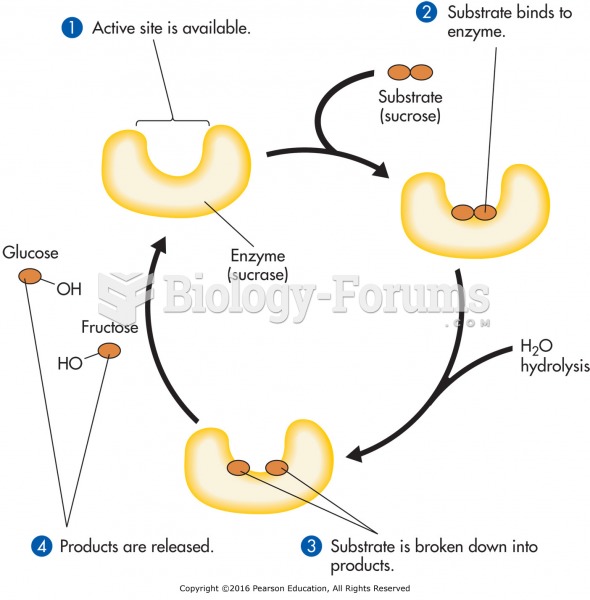|
|
|
Medication errors are three times higher among children and infants than with adults.
Looking at the sun may not only cause headache and distort your vision temporarily, but it can also cause permanent eye damage. Any exposure to sunlight adds to the cumulative effects of ultraviolet (UV) radiation on your eyes. UV exposure has been linked to eye disorders such as macular degeneration, solar retinitis, and corneal dystrophies.
As the western states of America were settled, pioneers often had to drink rancid water from ponds and other sources. This often resulted in chronic diarrhea, causing many cases of dehydration and death that could have been avoided if clean water had been available.
If you could remove all of your skin, it would weigh up to 5 pounds.
On average, someone in the United States has a stroke about every 40 seconds. This is about 795,000 people per year.







